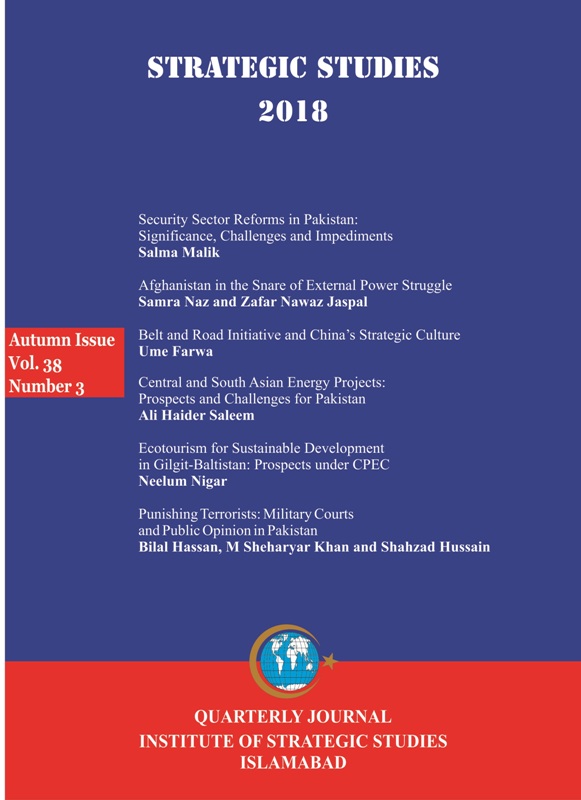Security Sector Reforms in Pakistan: Significance, Challenges and Impediments
Keywords:
Security Sector Reform, Police Order, National Reconstruction Bureau, Levies, Khasadars, FCR, Nizam-e-AdlAbstract
Since 9/11 and the consequent US-led military action in Afghanistan, the Pakistani military has been deployed in the north-western areas to crush militant insurgency both by indigenous as well as foreign agents. This has brought about a major shift in the security posture of Pakistan, whereby the military’s role has extended beyond its traditional duties. For nearly two decades, monitoring law and order, diffusing radical, militant as well as ethno-nationalist groups in select pockets of the country and countering terrorism, has transformed military’s traditionally assigned role. Given the complexity of the problems impacting the internal sovereignty of the country, the process has become more inclusive with attention being focused in the areas of law enforcement as well as judicial and legislative bodies to improve the quality of their performance and making them more result oriented and effective. In terms of governance, the country has also faced problematic civil military relations, leaving little space for democratic forces to operate and mature fully. Not only does the military remain central to the debate on securitisation but also leads the discourse on Security Sector Reform (SSR). This paper attempts to review the various dimensions of SSR in a theoretical perspective, alongside an overview of the existing security sector institutions in Pakistan, besides highlighting the impediments and challenges faced.

Published
How to Cite
Issue
Section
Copyright (c) 2022 Strategic Studies

This work is licensed under a Creative Commons Attribution-NonCommercial 4.0 International License.



